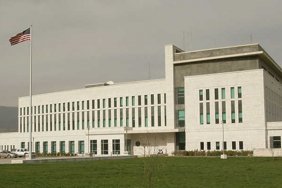Anri Okhanashvili, the chair of the Legal Affairs Committee in the Georgian Parliament, on Monday claimed controversial amendments in the law against corruption ensured the immunity of the anti-corruption bureau chair, an agency formed last year as recommended by the European Union, whose chair is appointed by the country’s Prime Minister.
The lawmaker from the ruling Georgian Dream party, claimed the bill established that prosecution, detention, or arrest of the bureau chief, as well as searches of their residence, workplace, vehicle, or person, required prior consent from the Parliament of Georgia.
An exception to this rule was spotting at the crime scene, which, Okhanashvili said, “must be promptly reported” to the Parliament. If consent was not granted within 48 hours, the detained or imprisoned bureau chief “must be released immediately”, the MP added.
The Prosecutor General of Georgia was authorized to present a proposal to conduct investigative actions to the Parliament, which the Procedural Issues and Rules Committee then examined within five days, providing a written conclusion to the Parliament Bureau.
The Bureau subsequently brought the issue to the next parliamentary session for discussion and resolution. A decision was reached by majority vote of the full Parliament. In the case of the bureau chief's presence between parliamentary sessions, the matter would be addressed according to the procedures outlined in the Constitution of Georgia.
The amendment clarified one of the grounds for the premature termination of the bureau chief's authority, specifically relating to holding incompatible positions or engaging in incompatible activities. It also abolished the basis for premature termination of the bureau chief's authority concerning drug consumption and evasion of mandatory drug tests.
Okhanashvili emphasized that this did not imply impunity for drug-related offenses committed by the bureau chief, as such actions would constitute grounds for the early termination of their authority.
The revisions also addressed the determination of the bureau chief's budget and financial discretion, rectified gaps in official property declarations, and enhanced whistleblower protection.
"This set of changes aims to fulfill a segment of the nine-point plan [outlined by the European Commission in November for opening accession talks with Tbilisi], focusing on further fortifying the anti-corruption bureau and establishing guarantees for its enhanced efficacy," Okhanashvili noted.
The members of the domestic opposition label the amendments as “decorative” and “deceptive” to European allies, claiming the current government is engaged with “elite corruption”.



